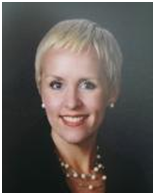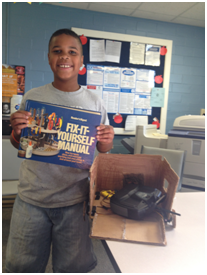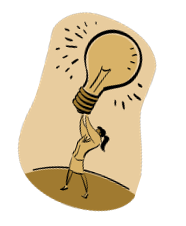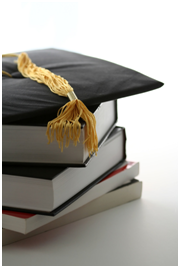This is one of a series of posts leading up to CTL’s 20th Anniversary forum and celebration, September 9th at the Muhammad Ali Center in Louisville, KY.
By Dr. Carmen Coleman, formerly Superintendent of Danville Independent Schools, Associate Clinical Professor, Educational Leadership Studies, Superintendent Certification Program and National Center for Innovation in Education, University of Kentucky.
 Five years ago in Danville, we began a journey. We wanted to know what schools were doing that were cultivating learners who weren’t only ready for something when they graduated from high school, but who were equipped to be successful in their postsecondary endeavors. We read, we visited and we learned.
Five years ago in Danville, we began a journey. We wanted to know what schools were doing that were cultivating learners who weren’t only ready for something when they graduated from high school, but who were equipped to be successful in their postsecondary endeavors. We read, we visited and we learned.
We realized that in some schools, students were engaged in meaningful, challenging work. Work they were excited about. We also realized that in some schools, students weren’t sitting on the edge of their seats, waiting for the bell to ring. As a matter of fact, they weren’t sitting at all. They were working around the room, around the school and even outside…even in places other than the school building or on the school campus. And, they cared about the work they were doing. They cared so much in fact that they could be found still working on projects long after the end of the school day.
These students were also fantastic communicators. They could talk in depth about their work, and they’d shake your hand and look you in the eye when they did. It was sometimes hard to remember that these were teenagers. They were impressive – to say the least – and they would be competing with our other students for college admission, scholarships and ultimately, jobs. It became very clear who would have the advantage.
The Danville Diploma
 “Where do we begin,” we wondered. After much discussion, we started with a question: What does our diploma really mean? In its most literal sense, we determined that it meant the kids couldn’t come back. That wasn’t what we were looking for. So, we thought about the skills and experiences we felt were most important. We quickly agreed on creativity, perseverance, effective communication and problem-solving, just to name a few. Moreover, we:
“Where do we begin,” we wondered. After much discussion, we started with a question: What does our diploma really mean? In its most literal sense, we determined that it meant the kids couldn’t come back. That wasn’t what we were looking for. So, we thought about the skills and experiences we felt were most important. We quickly agreed on creativity, perseverance, effective communication and problem-solving, just to name a few. Moreover, we:
o Decided we wanted our students to begin planning for successful pathways as early as 5th grade, and we wanted them to have as many options as possible.
o Wanted them to become conversant in at least one language other than English, with the opportunity to explore others.
o Wanted them to have meaningful, in-depth experiences with service learning and career interests as well as on going opportunities to explore both visual and performing arts.
Thanks to the help of many, we created what we’ve come to know as the Danville Diploma, a list of 10 essentials for our graduates. This document has become a focal point for us.
Students take the Wheel
Three years ago, just before graduation, one of our soon to be graduates told me, “For 13 years, I’ve been told what pages to read, how long papers needed to be, what classes to take and where to sit. Now, everyone is asking me what I want to do. The truth is, I have no idea. I’ve never even made any choices for myself.” We knew this had to change.
Our first step was a week long Intersession, during which every high school student created his or her own college and career success plan. Our kids, as kids almost always will, inspired and impressed us with the seriousness with which they accepted this responsibility. Some did mini-internships, making all of their own arrangements. Some did ACT prep. Some did college research and visits. Some took cooking classes. Some did a combination of those. All had a fantastic experience. They arrived early to begin the week and didn’t want to leave in the afternoons. I will never forget that Friday, when there was a threat of very severe storms. I walked into the high school, and I was greeted by a mass of teenagers who literally begged me not to close school early.
Now, thanks to invaluable insights from our students and the creation of the Danville Diploma, this kind of experience – with the opportunity to make choices and decisions, explore career interests and to do work that matters to them – happens for students of all ages on a regular basis, not just during one special week.
Balanced Assessment System
As innovation gained momentum, it became apparent that we had to make decisions about where we would focus. We absolutely believe in accountability, and we believe standardized measures are essential. However, we believe that all assessments should hold value for students and should help lead to important outcomes for them. The standardized measures in place just didn’t seem exactly right. As one principal stated, “The current standardized measures show us what our students can’t do. We need something to show us more about what they can do.”
Thanks to the help of our partners and friends in the New York Consortium Schools, we have designed an assessment system that lends itself to the kinds of work we want our students to do day-to-day. We realize that classroom practice will closely reflect the kinds of assessments students are required to take, and it makes sense to us to make sure those assessments lead to the kinds of experiences most beneficial for students.
Our performance-based system emphasizes the same three components we want teachers to emphasize in the experiences they create for students each day: content, Danville Diploma skills, and the application of both. We want students to understand content and to make interdisciplinary connections. We also want to be just as intentional with teaching those Danville Diploma skills like initiative, perseverance, teamwork and critical thinking as we are about teaching content. And, just as importantly, we want students to be able to apply the content and skills they learn to new and different situations.
Phase One of our formal performance-based assessment system implementation took place in the 2013-14 school year with 6th graders taking part in Round Tables, and 7th and 8th graders completing individual Defenses. We were thrilled with the outcomes for students, and look forward to expanding to both the elementary and high school levels. More information about this year’s tasks for our middle school students can be found here – Middle School Student Tasks.
Another aspect of our performance-based system includes special presentations called Gateways. These are individual, oral presentations before a panel of 3-4 people, required for our 5th and 8th graders. Students prepare a
 2-3 minute presentation explaining how they know they are ready to move ahead. Each student talks about strengths related to the Danville Diploma as well as areas of growth. Then, panelists have a chance to ask questions. We are getting to know our students like never before.
2-3 minute presentation explaining how they know they are ready to move ahead. Each student talks about strengths related to the Danville Diploma as well as areas of growth. Then, panelists have a chance to ask questions. We are getting to know our students like never before.
Digital Portfolios
Our students have also begun collecting artifacts in a digital portfolio – custom designed for us by University of Kentucky faculty member, Gerry Swann – demonstrating their progress toward the Danville Diploma skills. They will graduate not only with a transcript, but with a link that can be shared with others that will show what they can do far beyond what is reflected on a flat piece of paper or by a single score.
To Be Continued
Our work has been exciting, inspiring, scary and often frustrating. It is also far from finished. There have been many, many meetings and sometimes sleepless nights. It is difficult to re-imagine the school experience. However, if we take time to think about the kinds of skills kids need to gain today to be most successful tomorrow, and create learning experiences that will foster those, the rewards far outweigh the struggles.
Our students say things like, “I’m finally getting to do the things in school that I really love,” and their parents tell us stories of coming home to find all kinds of new creations as result of their children having been inspired. Now, our students are producing products like this – KY Students Succeed without Testing.
There are certainly risks involved with innovation. However, as one of my Board members wisely said, “The greater risk is not imagining what could be.”
Visit our 20th Anniversary event page for other related blogs and information.

